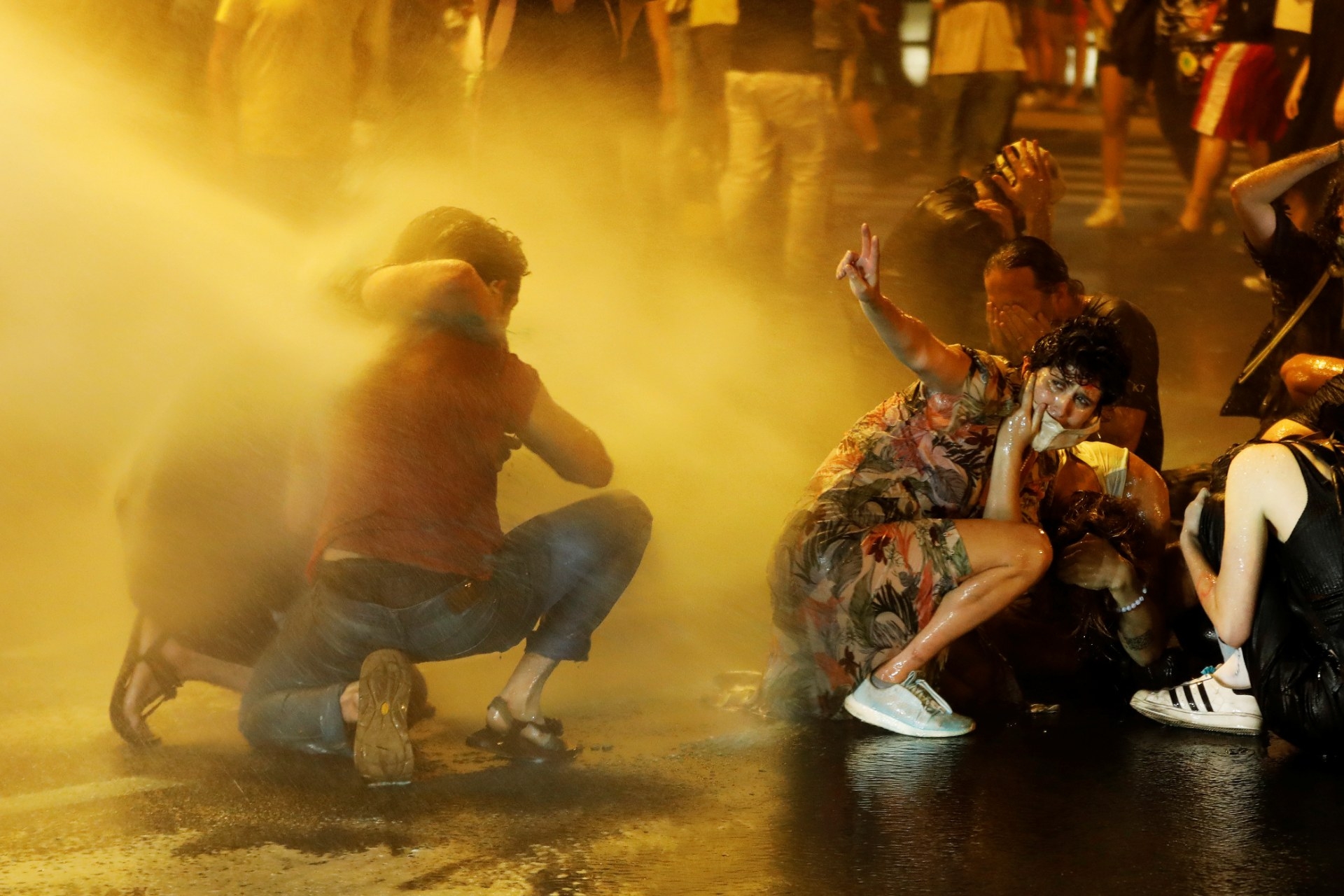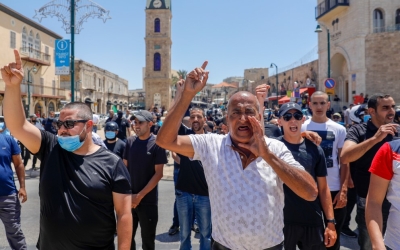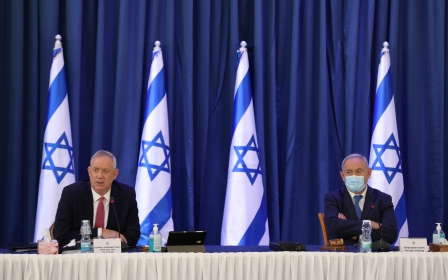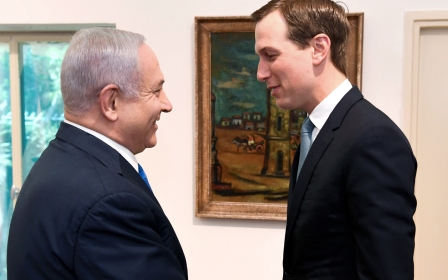'A long time coming': Anti-Netanyahu protests in Jerusalem met with violence

Thousands of Israelis calling for Benjamin Netanyahu's resignation were met with police violence on Tuesday night outside the prime minister's Jerusalem residence, as rancour over corruption charges and his handling of coronavirus swells.
The demonstration was organised on 14 July to coincide with Bastille Day, with one protest organiser urging Israelis to use the day to demand "liberty, equality, and fraternity", echoing the French Revolution.
Protesters said they would camp outside Netanyahu's residence and stay there until he stepped down from power.
However, police intervened, violently disbursing the demonstration using horses, water cannons and tear gas as the protesters, many of whom wore masks but ignored social distancing advice, moved towards the city centre.
At least 50 protesters were arrested, and their cases are expected to be heard by a court later on Wednesday.
Many demonstrators held placards against Israel's emergency coronavirus laws and signs expressing fears that Netanyahu's corruption charges will harm Israeli democracy. The prime minister is currently on trial on charges of breach of trust, fraud and bribery.
'The people will have nothing to eat, the civic security will be shaken, Israel will become more of a police state'
- Einat, protester
Haim Shadmi, one of the main demonstration organisers and member of the Crime Minister protest group, said Israel had reached the "point of no return" and that the protests were a "long time coming".
"Tuesday's protests were different because people from across Israel, including Eilat, which is four hours away, and from different backgrounds, came to the demonstration," Shadmi told Middle East Eye.
"We started this protest [against Netanyahu] four years ago and have had a weekly tent near the prime minister's residence, but now the protesters are gaining momentum and getting bigger. Netanyahu will stop at nothing to avoid conviction, even if it comes at the cost of harming ordinary people or bringing Israel to the brink of civil war."
According to Shadmi, 40 people have slept in tents outside the residence over the past 35 days.
"We are staying here until Netanyahu goes, because the situation we are in is near impossible," he said.
An Israeli police spokesperson confirmed that demonstrations had moved from Netanyahu's residence to the city centre and said officers intervened to stop property damage.
"Hundreds were disturbing the order in the city centre, throwing stones, eggs and objects at the police forces, in addition to extensive damage to properties," the spokesperson said in a statement.
"The district commander, Superintendent Doron Yedid, supports freedom of expression but gave an order to disperse the disturbances and not allow harm to the public and property."
At first, Israel's government won plaudits for its harsh but apparently effective response to the pandemic.
However after easing lockdown, cases have spiked and spread far more widely in recent weeks than when the virus first emerged in March. The health ministry said more than 1,400 new cases were recorded in the past 24 hours alone, bringing the total to 41,200, including 368 deaths.
Meanwhile, the government has sought to close down businesses once again, including bars, nightclubs and gyms.
Though Netanyahu last week announced a welfare package to support out-of-work Israelis and businesses, many say the government is not doing enough to protect them, and complain that less than half of the $29bn in assistance already pledged has been distributed.
Around a fifth of Israel's population of nine million is currently unemployed.
The government has also stepped up its surveillance of the population, passing legislation that gives the Shin Bet domestic security agency new powers to track people suspected of being infected.
Einat, a 57-year-old architect, came to protest from Tel Aviv and described the demonstration as "joyful" until the police intervened.
"I was amazed of the huge number of people and especially that there are many young Israelis who came from all around the country to protest. I am here because am worried and scared that Netanyahu is leading us to the situation of anarchy," she said.
"The people will have nothing to eat, the civic security will be shaken, Israel will become more of a police state. Of course, this is what Netanyahu wants, anything that can save him from the corruption case and keep him in power."
Orly Noy, an Israeli journalist, told MEE: "Inside the protest you could feel the anger and rage, the feeling that we are fed up of being screwed by Netanyahu."
She described the protests as a shifting point in Israel's political atmosphere, and doubts they will end any time soon.
"The police are becoming more and more violent each time, and this makes protesters angrier. I mean violent in the scale for Israelis, not to compares to violence against Palestinian protesters," she said.
Middle East Eye propose une couverture et une analyse indépendantes et incomparables du Moyen-Orient, de l’Afrique du Nord et d’autres régions du monde. Pour en savoir plus sur la reprise de ce contenu et les frais qui s’appliquent, veuillez remplir ce formulaire [en anglais]. Pour en savoir plus sur MEE, cliquez ici [en anglais].





